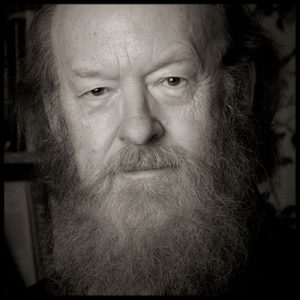 Robert C. Neville is Professor of Philosophy, Religion, and Theology at Boston University. We invited him to answer the question “What norms or values define excellent philosophy of religion?” as part of our “Philosophers of Religion on Philosophy of Religion” series.
Robert C. Neville is Professor of Philosophy, Religion, and Theology at Boston University. We invited him to answer the question “What norms or values define excellent philosophy of religion?” as part of our “Philosophers of Religion on Philosophy of Religion” series.
The primary instances of excellent philosophy of religion come from thinkers who have philosophies that say something important about religion. Think of Hobbes, Locke, Leibniz, Hume, Kant, Hegel, Schleiermacher, Schelling, Peirce, James, Whitehead, and Dewey from the modern Western tradition. These are the people we teach in historically oriented courses in philosophy of religion (along with classical and medieval thinkers, and sometimes representatives of South and East Asian religions). Secondary instances of excellent philosophy of religion come from thinkers who study aspects of religion alone, or mostly alone. I hold that there are four main norms or values defining excellence in primary philosophy of religion.
The first norm is systematic comprehensiveness in relating the many aspects of religion to each other and to everything else. Religion is so complex that no consensus exists as to how to define it, and excellent philosophy of religion needs to show how this complexity relates to the many other things a philosophy should treat. It is fairly obvious that excellent philosophy of religion should treat the nature of ultimate reality or realities and show how various parts of religion engage this. Also, excellent philosophy of religion needs to relate to epistemology so as to interpret cognitive aspects of religion, to morality to interpret how obligation lies, or does not lie, within religion, to psychology and other aspects of selfhood so as to relate to the religious quest for wholeness or alleviation of suffering, to social organization to treat that aspect of religion, to politics, jurisprudence, economics, education, art, and all those other “philosophy of …” topics as they relate to religion. To do all this, excellent philosophy of religion needs to be philosophically systematic, and many models of system exist even if system is not popular in philosophy today.
The second norm is that excellent philosophy of religion needs is to operate out of a base of comparative erudition. Most (though not all) of the thinkers I mentioned above operated out of a Western, if not generally Christian or deist, religious agenda, which biases philosophical study of other religions. Enough scholarly work has been done on most of the world’s religions for them to be brought into comparative connections. The nature of religious and theological comparison itself is a major topic within philosophy of religion today. Comparative philosophical inquiry is also part of philosophy of religion. Some comparisons are detailed and precise. Others are vaguer though still important. For instance, we know now that West Asian religions often develop conceptions of ultimacy out of symbols of persons, emphasizing heightened intentionality, agency, rationality, and will. South Asian religions often develop conceptions of ultimacy out of symbols of persons, but by eliminating just those aspects of intentionality, agency, rationality and will preferred in West Asia and emphasizing purified consciousness. East Asian religions explicitly reject personal models of ultimacy and instead develop symbols of spontaneous emergence. To be sure, many cross-overs and internal variations exist, and excellent philosophy of religion needs to operate out of erudite consciousness of these differences, variations, and counter-influences.
The third norm is that excellent philosophy of religion should seek understanding of the various aspects of religion, how they hang together (or do not hang together), and how they relate to the rest of reality. I mean to contrast understanding as grasping things in relation with explanation as showing how some aspect of religion reduces to something else, for instance evolutionary adaptability, psychological structures, or social legitimation. To be sure, aspects of religion are related to one another and to non-religious things causally sometimes and, in these instances, explanation is to be subsumed into understanding by excellent philosophy of religion. Nevertheless, causal relations are better treated as relations than as reductions because the “effect” in the relation might very well be the effect of many other things with respect to which it is also related. Understanding of an aspect of religion involves comprehending how it stands in relation to all the things to which it is related, and seeing also how it harmonizes (or fails to harmonize) those many relations within itself. No aspect of religion, or religion as a whole if there is such a thing, can be understood only in terms of its relations to other things: understanding something involves knowing how it harmonizes its relations to have its own being.
Wesley Wildman has argued that philosophy of religion is comparative, multidisciplinary inquiry; see his Religious Philosophy as Multidisciplinary Comparative Inquiry: Envisioning a Future for the Philosophy of Religion (Albany, NY: SUNY Press, 2010). My second norm for comparative erudition and third norm for understanding the complexities of religion express my agreement. More than Wildman, however, I stress the need for integration and system as expressed in my first norm.
The fourth norm for excellent philosophy of religion is that it should provide philosophic guidance for how to live in the various aspects of religion. I group these aspects into three main kinds. The first are cognitive aspects of religion, and therefore philosophy of religion needs to include philosophical theology, broadly considered; philosophy of religion should not pretend to be a study of beliefs only, but also of their merit. The second are existential aspects whereby individuals’ and groups’ most basic identity is determined religiously, and therefore philosophy of religion needs to include understanding of how people are defined religiously, well-defined, not poorly defined. The third are the practical, institutional, organizational, artistic, and spiritual aspects of religion; philosophy of religion needs to understand how to live well in all these aspects of religion.
In sum, the four norms I think should constrain excellent philosophy of religion are comprehensiveness within a system of philosophy that treats religion, erudition in comparative matters of religion and philosophy/theology, understanding as a mode of knowledge rather than explanation of religion in terms of something else, and philosophic guidance in religious matters.


